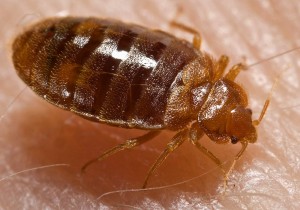WESTFIELD—The bedbug situation in Westfield Housing Authority (WHA) residences is a “chronic problem,” according to WHA director Dan Kelly.
The bedbug problem, which WHA has been treating for over a decade, is continuing to strike apartments in the organization’s housing despite continued efforts to eradicate the problem. According to Kelly, an effective treatment option has been found and has been utilized but several factors playing into the situation have resulted in the problem continuing chronically.
“Some of it is the doing of the tenants and some of it are the bugs,” Kelly said. “It’s an ongoing problem.”
Kelly said that the source of the bedbugs is not certain, but possible culprits include bringing in items from the outside that may be currently affected. Additionally, when one apartment is treated, Kelly said that the bedbugs may travel to another, where they then become a nuisance to another occupant.
“We’ve gone into an apartment and they are crawling on the wall and they didn’t want to say anything,” Kelly said. “You treat one apartment and hope it doesn’t move to the next.”
And the problem is continuing to cost both the residents and the WHA. In the most recently completed fiscal year for WHA, which ran from April 1, 2016 to March 31 2017, Kelly estimated that WHA spent at least $6,000 on treatment for bedbugs. One positive though, is that this is about a half to two-fifths of what was spent during the previous fiscal year, as reported to The Westfield News in April of last year by Kelly.
For residents, they are losing time in their apartments during treatment, and there is also a potential that furniture may have to be thrown out if the infestation is too large. According to notices sent to residents whose homes are treated, they must leave their apartments for at least four hours during each treatment, of which there are three. Also, all clothing, towels, linen and other cloths are to be removed from the premises, as well as washed and put into plastic before returning, and all surfaces must be thoroughly vacuumed.
The treatment that is used by the WHA currently is a powder insecticide treatment that is administered by a local pest control company. Its cost is about $500 each treatment, but is less expensive than the other option, heat treatment, which can cost double.

